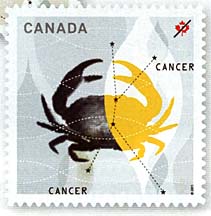To minimize risks of cancer and other chronic diseases, a healthy diet includes lots of fruits and vegetables. Growing many of these foods requires pollination by bees, but bees are dying en masse – this is called “colony collapse.” Top of the list of suspect causes is a group of chemicals known as neonicotinoid (literally “new, nicotine-like”) insecticides. Canadian beekeepers, such as those in Ontario, see ample evidence that these insecticides kill bees. Neonicotinoids don’t stay in one place – they are mobile in the environment, and pollinators ingest the pesticide from pollen and water. Henk Tennekes and Pierre Mineau, have demonstrated falling insect and associated bird populations with current use of neonicotinoids in Europe and North America respectively. Neonicotinoids degrade very slowly (breakdown products persist for years), and thus are continually building up in the environment, with some breakdown products even more toxic than the original chemical. Breakdown is very complex, as illustrated by Bayer’s information on imidacloprid. According to the US National Toxicology Program summary, the breakdown product, 2-chloropyridine, has no known environmental breakdown pathway, is very stable, is mutagenic, and has the characteristics of a carcinogen. Every molecule of the pesticide creates a molecule of 2-chloropyridine.
High levels of infections in some “collapsed colonies” have clouded evidence that neonicotinoids cause bee deaths; however recent research shows that these are connected. Honey bees exposed to a common neonicotinoid insecticide had impaired immunity and higher pathogenic viral replication, making them more susceptible to infection.
Will we save our bees? The scientists and bee-keepers are pitted against pesticide lobbyists for the hearts and minds of Canada’s regulators. Croplife, the chief pesticide lobbying group, just recruited former Conservative MP Ted Menzies as its new President and CEO. According to investigations by CBC, Menzies is restricted from lobbying until 2018, but his job includes openly dispatching others to bend the ears of his former colleagues.
What to do? Organic farming methods are bee-friendly, while virtually all of Canada’s conventionally grown corn and half the soy seed comes with a coating of neonicotinoid insecticide. While lobbyists battle it out in Ottawa, we can all write letters, and vote with our money at the grocery store.
Author (source): Dr Meg Sears in Pesticide Truths, 10 February 2014
http://pesticidetruths.com/2014/02/10/expert-at-nothing-meg-sears-preve…
Meg Sears PhD is a Board Member of Prevent Cancer Now
Link to imidacloprid breakdown:
http://www.flora.org/healthyottawa/merit-pesticide-insecticide-grub.htm

- Login om te reageren

Imidacloprid may be weakly mutagenic
In a battery of 23 laboratory mutagenicity assays, imidacloprid tested negative for mutagenic effects in all but two of the assays. It did test positive for causing changes in chromosomes in human lymphocytes, as well as testing positive for genotoxicity in Chinese hamster ovary cells (331). Imidacloprid is considered to be of minimal carcinogenic risk, and is thus categorized by EPA as a "Group E" carcinogen (evidence of noncarcinogenicity for humans). There were no carcinogenic effects in a 2-year carcinogenicity study in rats fed up to 1,800 ppm imidacloprid (328).
Source: Extension Toxicology Network (EXTOXNET)
http://extoxnet.orst.edu/pips/imidaclo.htm
References:
(331) Federal Register. Imidacloprid; Pesticide Tolerances. July 5, 1995. 60(128): 34943-24945
(328) U.S. Environmental Protection Agency. 1995. Imidacloprid; Pesticide Tolerance and Raw Agricultural commodities. 40 CFR Part 180 Section 472